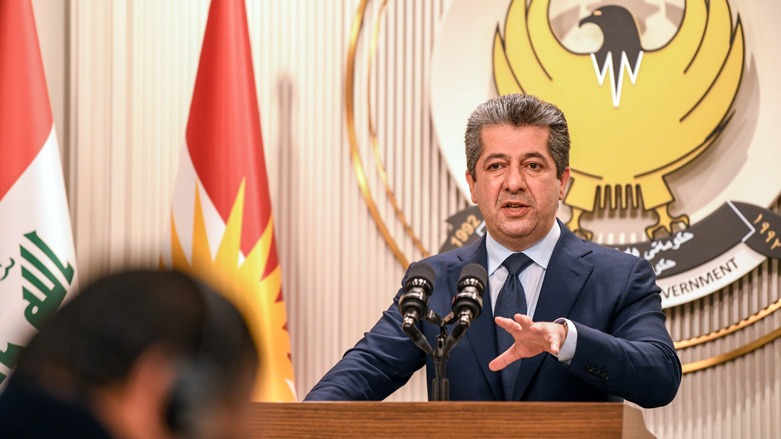The March 11 Agreement of 1970 was a message that Kurds believe in peaceful resolution of conflicts: Kurdistan Region PM Barzani

ERBIL (Kurdistan 24) – The Autonomy Agreement struck between the Kurdish revolutionary leadership and former Iraqi regime in 1970 was a crystal-clear message that the Kurds believe in dialogue and peaceful resolution of conflicts, Prime Minister of the Kurdistan Region Masrour Barzani said on the 52nd anniversary of the historical event.
After 11 years of intense fighting between the Kurdish forces, spearheaded by legendary Mustafa Barzani, and the then-Iraqi regime, a peace deal was reached granting the Kurdish people political autonomy and government representation.
The agreement was announced on March 11 1970, in the presence of Kurdish and Iraqi leaders.
“This Agreement was a crystal-clear message of the Kurdish people that they always believe in dialogue, negotiation, and peaceful resolution of conflicts,” Prime Minister Masrour Barzani said in a statement issued on the 52nd anniversary of the historical accord.
The accord recognized the official status of the Kurdish language, and three governorates, along with their affiliated districts, as autonomous provinces. A number of political posts were reserved for the Kurds in the Baghdad government.
“We commemorate this day a time when there are still parties that seek to deny Kurdish rights and their constitutional entitlements,” Barzani said. Barzani reiterated that although the Kurdistan Regional Government is willing to negotiate outstanding issues with the Iraqi government based on the 2005 constitution, it would never give up those rights.
While the 1970-accord was supposed to be fully implemented within four years, Iraqi officials soon withdrew their commitment. This eventually led to the resurgence of armed conflict in 1974, known as Second Iraqi-Kurdish War.
